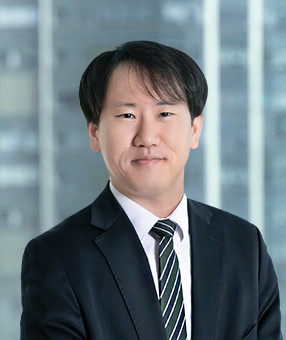On October 4, 2023, the Busan District Court (Case No.: 2023-GaHap-42160) awarded punitive damages after finding the defendant willfully infringed the patentee's patent. This was the first time a court awarded punitive damages since an amendment to the Korean Patent Act ("KPA") became effective on July 9, 2019, which gave courts discretion to award treble damages (up to three times actual damages) for willful infringement ("Amendment"). A recent amendment increased this to five times actual damages on January 25, 2024. This latest amendment will go into effect on August 21, 2024.
Prior to the Amendment, a patent owner could only claim actual damages for patent infringement. See Art. 128 Cl. 1~5 of the KPA. However, in addition to actual damages, the Amendment allowed for a punitive award of up to three times the actual damages for intentional or willful acts of infringement for any such acts that first took place after July 9, 2019. See Art. 128 Cl. 8 of the KPA.
Under the Amendment, in determining whether punitive damages should be awarded, the courts review the totality of the following factors: (i) whether the infringer has a dominant position; (ii) whether the infringer knew the act of infringement would cause harm to a patent owner, or intended such harm; (iii) the significance of any such damages; (iv) the economic benefits to the infringer from the infringement; (v) how frequently and how long the infringing activity was committed; (vi) the criminal penalty for the infringing activity; (vii) the infringer's financial status; and (viii) what efforts the infringer has made to reduce the harm to the patent owner.
Prior to this decision, the courts had yet to award punitive damages. There were a handful of cases that considered applying the Amendment but in all such cases, the courts did not apply the Amendment as (i) the courts did not find the actions willful, (ii) the level of willfulness did not rise to the level that would trigger application of the Amendment; or (iii) the first infringing action took place before the effective date of the Amendment even though the same infringing action continued after the effective date of the Amendment.
In a first application of the Amendment, the Busan District Court awarded punitive damages based on a finding of willful infringement in a case involving a seal surrounding the lid of a cooking device. The court's decision was significant as it broke from precedent in that the infringing action, which first took place in 2015 and lasted until 2022, was separated into two distinct periods, one pre-Amendment and one post-Amendment, and awarded punitive damages for infringing actions that took place post-Amendment.
The court's decision lists, among others, the following reasons for its decision finding willfulness and to award punitive damages (0.5 times actual damages from infringing actions that took place post-Amendment) while not specifying how each of the facts contributed in the court's decision.
- In May 2019, plaintiff filed a request to the Korea Fair Trade Mediation Agency (KFTMA) to mediate defendant's continued use of plaintiff's patent and issue a decision regarding associated compensation.
- In June 2019, the KFTMA issued to the defendant an official request for appearance.
- The defendant's overall sales figures between 2015 to 2022 were KRW 143.2 billion in 2017, KRW 128.2 billion in 2018, and KRW 109.1 billion in 2019, KRW 27.2 billion in 2020, 120.2 billion won in 2021, and 93.6 billion won in 2022.
- Defendant's unit sales and revenue significantly decreased from April 2021.
- There was even record of the defendant buying back inventory from its distributors.
It should be noted that although punitive damages were awarded, the actual figure relative to the actual damages was small. The court considered punitive damages only for the defendant's infringing actions that took place after the Amendment became effective, and actual damages during post-Amendment period was considerably lower than the pre-Amendment period. The following table provides a summary of the damages awarded by the court:
| Infringing period | Actual damages (Art. 128 Cl. 4 of the KPA) |
Punitive damages (Art. 128 Cl. 8 of the KPA) / % of actual damages |
||||||||||||||||||||||||||||||||||||||||||||||||||||||||||||||||||||||||||||||||||||||||||||||||
| 2015. 11. 30. – 2019. 7. 8. | 843,512,469 | N/A | ||||||||||||||||||||||||||||||||||||||||||||||||||||||||||||||||||||||||||||||||||||||||||||||||
| 2019. 7. 9. – 2022. 10. 31. | 109,908,802 | 54,954,401 / 50% | ||||||||||||||||||||||||||||||||||||||||||||||||||||||||||||||||||||||||||||||||||||||||||||||||
| Total | 953,421,271 | 54,954,401 |
* all figures in KRW
Following the decision, the defendant appealed to the IP High Court, which is currently pending. In light of the precedents deciding against awarding punitive damages, it will be interesting to see whether the decision will be upheld.
Nonetheless, it is notable that the court, for the first time awarded punitive damages for infringing actions that took place after the Amendment even if the action began prior to the Amendment. This court's decision may provide an opening for other courts to award punitive damages for willful infringement and broaden the scope of protection for the patentees.
In addition, it is also significant that the court carefully reviewed the totality of actions taken by the parties to determine if a punitive damages award was warranted. In addition to the facts highlighted above, the defendant failed to respond to the plaintiff's cease and desist letter, and continued to sell infringing products resulting in total sales of over KRW 50 billion. As this court took a very fact based approach in determining whether or not to award punitive damages, it would be critical for patentees to thoroughly present all relevant facts to aid in the court's determination.
Related Topics







